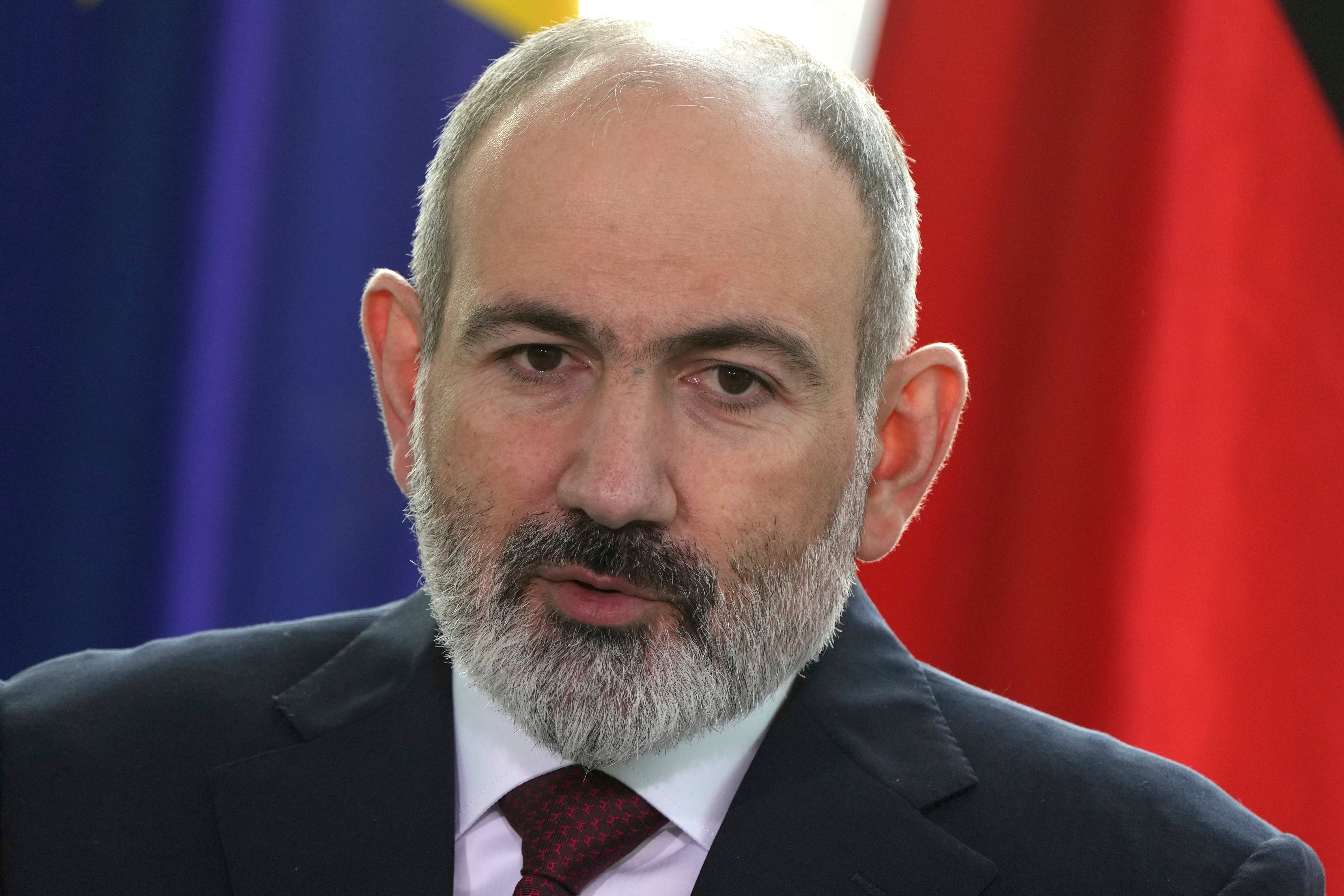Armenian PM critical of Moscow-dominated security pact
Armenia’s prime minister has accused a Moscow-dominated security alliance of leaving his country in the cold in the face of a threat of renewed hostilities with neighboring Azerbaijan

Your support helps us to tell the story
From reproductive rights to climate change to Big Tech, The Independent is on the ground when the story is developing. Whether it's investigating the financials of Elon Musk's pro-Trump PAC or producing our latest documentary, 'The A Word', which shines a light on the American women fighting for reproductive rights, we know how important it is to parse out the facts from the messaging.
At such a critical moment in US history, we need reporters on the ground. Your donation allows us to keep sending journalists to speak to both sides of the story.
The Independent is trusted by Americans across the entire political spectrum. And unlike many other quality news outlets, we choose not to lock Americans out of our reporting and analysis with paywalls. We believe quality journalism should be available to everyone, paid for by those who can afford it.
Your support makes all the difference.Armenia's prime minister on Tuesday accused a Moscow-dominated security alliance of leaving his country in the cold in the face of a threat of renewed hostilities with neighboring Azerbaijan.
Prime Minister Nikol Pashinyan has been repeatedly critical of what he described as the failure of the Collective Security Treaty Organization, or CSTO, to protect member Armenia amid a standoff with Azerbaijan over Nagorno-Karabakh.
Russia, which has sought to preserve strong ties with its ally Armenia while also maintaining friendly relations with Azerbaijan, has engaged in a delicate diplomatic balancing act, avoiding any forceful action. The Kremlin’s clout in the region has become more limited as Russia has focused its resources on the war in Ukraine.
Pashinyan said at a news conference that it wasn't Armenia that is pulling out of the CSTO, but, on the contrary, “the CSTO is pulling out of Armenia, whether it wishes so or not.”
"We are concerned about that,” Pashinyan said.
He emphasized that “the threat of escalation along Armenia's border and in Nagorno-Karabakh is very high now,” noting “increasingly aggressive rhetoric from Azerbaijan.”
Tensions between Armenia and Azerbaijan soared in December when Azerbaijani protesters claiming to be environmental activists blocked the so-called Lachin corridor, the main road between Armenia and Nagorno-Karabakh, leaving its 120,000 residents short of food and other basic supplies. Last month, the United Nations’ highest court ordered Azerbaijan to allow the resumption of free movement along the road, but the situation has remained tense.
Nagorno-Karabakh lies within Azerbaijan but has been under the control of ethnic Armenian forces backed by Armenia since a separatist war there ended in 1994. In 2020, Azerbaijani troops routed Armenian forces in six weeks of fighting that ended with a Russia-brokered peace deal allowing Azerbaijan to take a significant part of Nagorno-Karabakh and reclaim nearby areas which had been in Armenian hands for nearly two decades.
During the latest standoff, Pashinyan and other Armenian officials strongly criticized Russia and the Moscow-dominated CSTO for the failure to ensure a free transit via the Lachin corridotor.
Reflecting its irritation with Moscow, Armenia canceled a planned military exercise by CSTO members set for this year and refrained from naming its representative to the bloc’s leadership.
Pashinyan said that he raised Armenian concerns about the situation during a call on Monday with Russian President Vladimir Putin and mentioned a recent protest staged by Nagorno-Karabakh residents in front of Russian peacekeepers' headquarters.
In another sign of his irritation with Moscow, Pashinyan said that Armenia would welcome other countries, such as the United States and Germany, to help broker peace talks with Azerbaijan.
He also noted that “the existing security architecture didn't work,” adding that Yerevan was taking efforts to “establish military-technical cooperation with many other countries.”